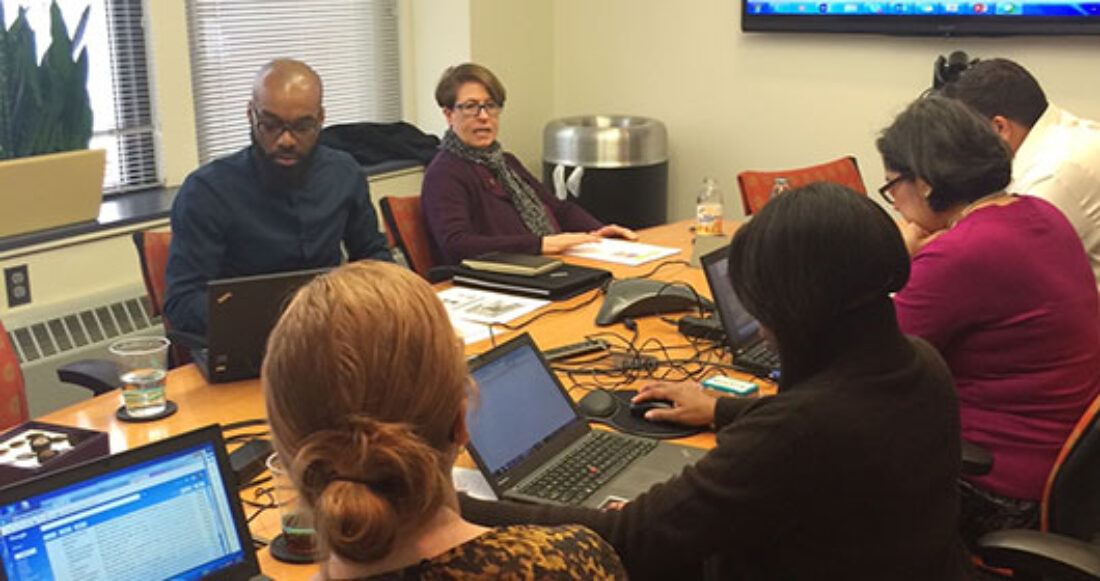Webinar Highlights 10 Practices of High-Performing Child Welfare Agencies

“Caseloads always matter,” Tracey Feild told participants in a February webinar on Casey’s publication, A Child Welfare Leader’s Desk Guide to Building a High-Performing Agency. The webinar, 10 Practices to Building a High-Performing Child Welfare Agency: An Overview, was the first in a three-part series.
In addition to managing caseloads, Feild noted that to be successful, child welfare agencies must engage families and community members to keep children safe and help them to thrive.
Feild, managing director of Casey’s Child Welfare Strategy Group, walked webinar participants through 10 key practices crucial to the success of child welfare agencies. The practices were identified through more than 25 years of Casey collaboration with public agencies.
Desk guide practices describe how agencies can better support foster parents and kin caregivers and ensure that children and teens live in families whenever possible. They describe the kind of data agencies need to collect and the necessity of addressing any racial disparities in child outcomes.
“The desk guide identifies five system-level practices and five frontline practices,” Feild said. “Agency leaders and staff can use these succinct characteristics and metrics to gauge their current practices and plan improvements. Advocates, judges and elected officials can use the desk guide alongside agency officials to drive improved child and family outcomes.”
Two other webinars are planned in this series.
Addressing Racial Disparities: Data Strategies for Measuring and Promoting Equity in Child Welfare Agencies
April 5, 2– 3 p.m. EST
Agency leaders, managers and data staff will learn to identify at which decision points children of different races experience inequitable outcomes, then measure the effectiveness of improvement efforts. Please register in advance.
Getting to Permanence: The Practices of High-Performing Child Welfare Agencies
June (Date TBA), 2– 3 p.m. EST
How do the most effective agencies make family relationships and permanence the focus of their casework? A look at practices that improve and build family relationships for all children who come to the attention of your agency. Registration information will be shared at a later date. If you have registered for the other webinars in this series, you will receive an email with registration instructions as soon as it’s available.





